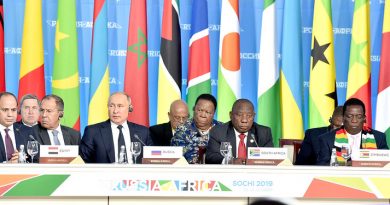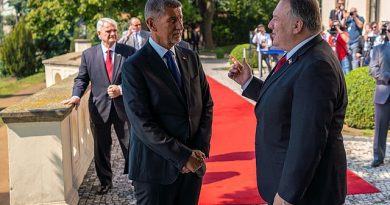Vatican, China Craft Agreement on Appointment of Bishops
By Anthony Tokarz
Staff Writer
Pope Francis and Chinese President Xi Jinping’s negotiators have been laboring for weeks to draft an agreement on one of the thorniest problems in Sino-Vatican relations: the ordination of bishops. The China’s ruling Communist Party alienated the Vatican in 1951 when Chairman Mao expelled the Papal State’s envoy, Antonio Riberi, and expelled all missionaries as part of the government’s crackdown on organized religion and persecution of all groups not sworn in allegiance to the Communists.
The party has since eased its stance by establishing in 1957 the Chinese Patriotic Catholic Association (CPCA), a government-run registry tasked with overseeing the activities of the nation’s 12 million Catholics. Although the CPCA demands that all Catholic organizations and persons register with the association, only 5.3 million have. This reflects the mounting tension between China’s state-recognized Catholic Church, and the underground Church, as summarized by American Magazine. The pope, from Pope Pius XII to incumbent Pope Francis, has made frequent overtures aimed at resolving this tension, and the current agreement stands at the end of a frustrating history of diplomatic efforts.
The underground church has faced intense persecution by the Chinese government, in large part because it recognizes the exclusive authority of the Pope over its administration, as well as the ordination of its priests and bishops. Herein lay the crux of Vatican City and Beijing’s disagreement: who should ordain bishops, and for whom?
The CPCA reserves for itself the right to ordain bishops that it expects will administer the affairs of all Catholics in China. This position renders the Pope irrelevant on a central issue of the Church’s hierarchical governments, and takes away from the Pope’s position as leader of the Catholic Church. As stated by Crisis Magazine, this installs the CPCA, and, thus, the Chinese Communist Party government, into that role in China. The new deal would seek to compromise by allowing Pope Francis to choose whom to ordain as bishop from a list of candidates from both churches put forth by the Chinese government.
Ratification of the agreement on both sides would initiate a détente between the world’s largest church, with 1.2 billion adherents, and strengthen access to the world’s most populous nation, with 1.357 billion people. The Chinese government would recognize Pope Francis as the head of the Catholic Church everywhere, which he expects would strengthen his hand in future negotiations. Pope Francis’s public willingness to cooperate with China would enhance both the nation’s image and prestige, according to Catholic World Report. China also hopes that cooperation with the Holy See will deflect international criticisms for its human rights abuses.
However, most members of China’s underground Catholic Church condemn the deal. It has been called “betrayal” for all the persecution and suffering which they have endured over decades of Communist suppression according to Reuters. Furthermore, underground priests have threatened secession from the Roman Catholic Church should the agreement pass, because many of their constituents see it as legitimizing the oppressive government and abandoning those who have for so long struggled against it.



